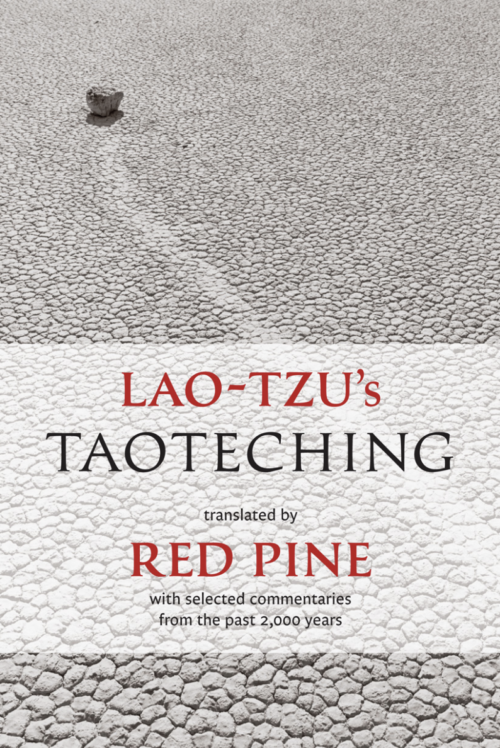Whatever is between the subjective and the objective is what we want to experience. Some call this a return to the “unmediated experience,” others “theosis,” others “things-in-themselves,” and others still “objective properties.” So far as I can tell, Lao-tzu calls this process of moving towards the objective becoming virtuous. The Old Master’s poetic sensibility, or at least Red Pine’s rendering of it, is not what it seems: In looking into the world, and seeking to move with its flowing discrepancies, we make real that which gives shape.
“Thirty spokes converge on a hub/ but it’s the emptiness/ that makes the wheel work”. Two things are striking: firstly, how tense and concrete the image is; a wheel, its spokes, and the ability to work. These things are simple, and likely something we experience everyday if we happen upon the lower half of a bicycle. What makes the image complicated is something we experience more often: emptiness. Or to rephrase: nothingness. This is not “non-being,” the utter void before God made the heavens and earth. Rather, it is Being’s complement and Red Pine makes us feel this complementary relationship sonically on the second line as “emptiness” contains the only stressed syllables–the effect is giving weight to that which is not there.
Like any great poem, the image is pushed further: “pots are fashioned from clay/ but it’s the hollow/ that makes the pot work”. While these lines hold a similar rhythmic pattern, what gets pushed is the notion of non-being, the yin of the hole, to the yang of the shaped clay. I say pushed because pots are not moving things–unlike a wheel, there is not the implication of change (movement) built into the definition of a pot. And yet, Lao-tzu shows us that it’s not only the change of the between states of being that are needed to make the pot a pot, but there is a tension by existing–that for something as simple as a pot, a wheel, or a window (or poem) to function it must inherently negotiate and unfold.
Unfolding does not, inherently, mean disruption. Like a poem, we’re asked by Lao-tzu to approach the world to find the harmony between existence and non-existence. And as a series of poems, the Taoteching moves beyond its genre because it not only is an aesthetic object, but a manual for living, both as an individual and as a society.
The spokes of the wheel may be read not just as a clear image, but a statement on community, the convergence is the communal effort, and the emptiness of their subjective experiences at once oriented towards the same goal. The emptiness of the pot may be a space where there is no clay, but it is also the space where we may place ten thousand other things that may themselves unfold (Taoteching 42: three gives birth to ten thousand things/ ten thousand things with yin at their backs/ and yang in their embrace”).
Even as a manual for writing, Lao-tzu shows us that the little spokes of the sentence, the wheel of the paragraph, and the cart of meaning are as discrete as they are a unified whole. In this way, we are being told it is better for our lives, and perhaps our practice as lovers of poetry, to reach towards the clarity of emptiness.
Indeed, what shocks me about Lao-tzu’s insights, and Red Pine’s translations of them, is their immense clarity. I see this clarity when I read the Johannine corpus (The Gospel, The Letters, The Apocalypse), Dante, The Upanishads, Plato and Wittgenstein. It is the clarity in which contradiction gives way to that analogy we call harmony. It is the clarity of the “shock of recognition” not for what my writing may become, but for a world that is hidden in the mist of the world that is and the immense beauty and fear that comes with recognizing how much virtue there is to cultivate.




